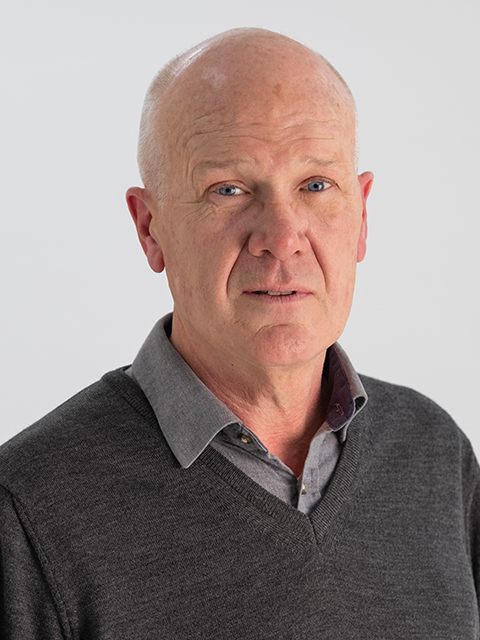Academic Career
- 2024: Emeritus Professor, Loughborough University
- 2017-2018: King Carl XVI Gustaf Professorship in Environmental Science.
- 2013: Royal Society Wolfson Research Merit Award.
- 2012: Chinese Academy of Sciences Senior visiting Professorship, NIGLAS, Nanjing.
- 2004 onwards: Professor of Physical Geography, Loughborough University.
- 1999–2003: Professor of Global Change, Department of Geography, University of Copenhagen.
- 1995–1999: Research Professor, Environmental History & Climate Department, Geological Survey of Denmark & Greenland GEUS.
- 1990–1995: Danish Geological Survey Senior research scientist, Geobotany Division.
- 1988-1990: Research assistant, University of Umeå, Department of Ecological Botany.
- 1987: Royal Society European Science Exchange Fellowship.
Professional Responsibilities
- 2005 onwards: European Journal of Phycology, Associate Editor, microalgal ecology.
- 1999 onwards: Journal of Paleolimnology Member of the Editorial Board.
- 2004-2006 Natural Environmental Research Council College Member (Joint Infrastructure (JIFS) committee 1999–2001; Freshwater Sciences Research grants and training awards committee; 1993–1997).
- 1997–2001: Freshwater Biological Association, Ambleside, Council member.
- 1995–2002: Freshwater Biology, Member of the Editorial Board.
John uses lakes to address anthropogenic disruption of global biogeochemical cycles, especially carbon, phosphorus and nitrogen. Lake sediment records allow the timescale of disturbance to be extended well beyond the start of contemporary monitoring, whether it is for heavily impacted lowland lakes or remote, relatively pristine sites in the Arctic. He is particularly interested in separating the effects of climate forcing from other drivers, such as land-use change, food-web dynamics and catchment-mediated processes, on ecological change in lakes over a range of timescales.
The role of lakes in the terrestrial carbon cycle is a central focus of John's research, both in terms of their degassing of CO2 but also quantifying the amount of organic carbon they sequester in their sediments. The effect of atmospherically derived reactive nitrogen deposition on remote, oligotrophic lakes is an important aspect of global environmental change and John has on-going projects that address this question in the Arctic and SW China.
He has worked extensively on lakes in the UK and Scandinavia, but now his main research area is SW Greenland where he has worked for 17 years. John's present research in Kangerlussuaq is funded by NERC and addresses the effect of terrestrial vegetation changes, N-deposition and in-lake processes on carbon dynamics and microbial diversity.
John is presently a Royal Society Wolfson Research Merit award holder and has published more than 100 papers in the peer reviewed literature with an ISI h-statistic is ~34.
- Anderson, NJ, Dietz, RD, Engstrom, DR (2013) Land-use change, not climate, controls organic carbon burial in lakes, Proceedings of the Royal Society B: Biological Sciences, 280(1769), ISSN: 0962-8452. DOI: 10.1098/rspb.2013.1278.
- Olsen, J, Anderson, NJ, Knudsen, MF (2012) Variability of the North Atlantic Oscillation over the past 5,200 years, Nature Geoscience, 5(11), pp.808-812, ISSN: 1752-0894. DOI:10.1038/ngeo1589.
- Anderson, N.J. Liversidge, A.C., McGowan, S & Jones, M.D. (2012). Lake and catchment response to Holocene environmental change: spatial variability along a climate gradient in southwest Greenland. Journal of Paleolimnology 48: 209-222
- Dong, X, Yang, X, Shen, J, Anderson, NJ, chen, X (2012) Carbon burial by shallow lakes on the Yangtze floodplain and its relevance to regional carbon sequestration, Global Change Biology, 18(7), pp.2205-2217, ISSN: 1354-1013. DOI: 10.1111/j.1365-2486.2012.02697.x.
- Anderson, NJ, Foy, RH, Engstrom, DR, Rippey, B & Alamgir, F (2012) Climate forcing of diatom productivity in a lowland, eutrophic lake: White Lough revisited. Freshwater Biology57:2030-2043
- D'Andrea, WJ, Huang, Y, Fritz, SC, Anderson, NJ (2011) Abrupt Holocene climate change as an important factor for human migration in West Greenland, PROCEEDINGS OF THE NATIONAL ACADEMY OF SCIENCES OF THE UNITED STATES OF AMERICA, 108(24), pp.9765-9769, ISSN: 0027-8424. DOI: 10.1073/pnas.1101708108.
- Anderson, NJ, D'Andrea, W, Fritz, SC (2009) Holocene carbon buriel by lakes in SW Greenland, Global Change Biology, 15(11), pp.2590-2598, ISSN: 1354-1013. DOI:10.1111/j.1365-2486.2009.01942.x.
- Anderson, NJ, Brodersen, KP, Ryves, DB, McGowan, S, Johansson, LS, Jeppesen, E, Leng, MJ (2008) Climate versus in-lake processes as controls on the development of community structure in a low-Arctic lake (south-west Greenland), Ecosystems, 11, pp.307-324, ISSN: 1432-9840. DOI: 10.1007/s10021-007-9123-y.
